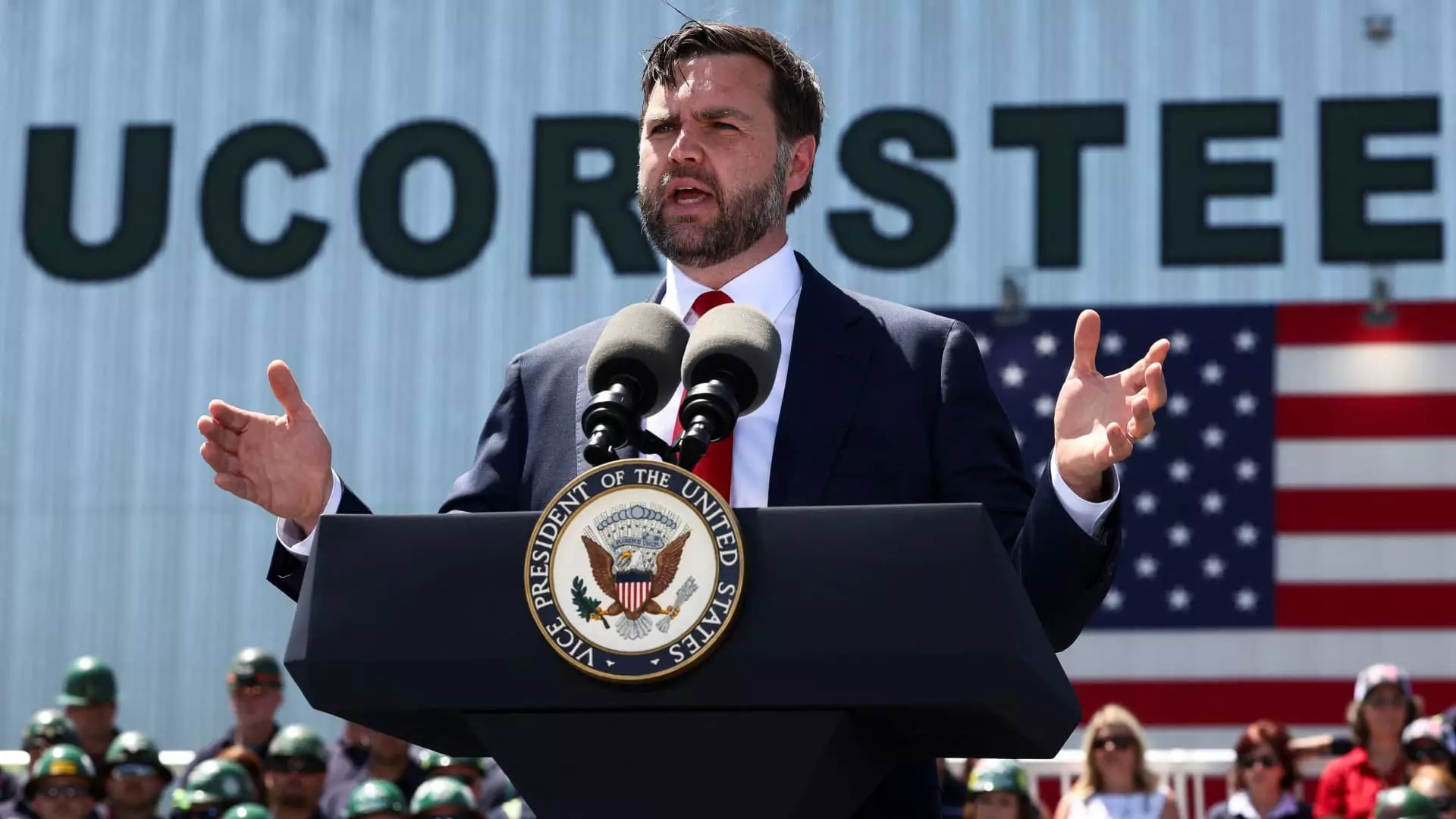In a shocking display of economic ignorance, President Donald Trump and Vice President JD Vance are launching a coordinated offensive against the Federal Reserve, demanding significant cuts to interest rates. This unprecedented move, underscored by Vance’s fervent assertions on social media, raises serious concerns about their grasp of the financial implications behind such demands. Vance’s claim that the Fed’s hesitance to lower rates amounts to “monetary malpractice” demonstrates a troubling misunderstanding of the complex dynamics at play within the economy.
Interpreting Inflation Trends
Recent inflation readings portray a stagnant economy, with the Bureau of Labor Statistics reporting a meager 0.1% increase in the consumer price index (CPI). Despite this seemingly benign figure, both the all-items and core CPI readings remain above the Federal Reserve’s target of 2%. While the duo insists that tariffs are yielding no significant upward pressure on inflation, it is critical to decipher the intricate relationship between monetary policy and inflationary measures. Advocating for rate cuts under the guise of easing inflation reflects a superficial understanding of the broader economic picture, where caution and foresight should take precedence over impulsive reactions.
The Ill-Timed Call for Rate Cuts
Trump’s previous insistence on aggressive interest rate cuts, including a staggering one percentage point reduction, seems more driven by his desire for political gain than by sound economic principles. Market reactions imply that traders currently anticipate a more prolonged wait before any easing occurs, with zero probability assigned to an immediate rate cut. Coupled with Vance’s cavalier attitude, this push for drastic rate reductions risks destabilizing financial markets and undermining the hard-earned stability that the Fed has worked to maintain. The complexities of the economic landscape do not lend themselves to simplistic demands; falling prey to populist rhetoric could set dangerous precedents.
Considering Economic Consequences
Prominent financial analysts such as Elyse Ausenbaugh of J.P. Morgan Asset Management express concern about the ongoing uncertainty surrounding the economy. Predicating interest rate reductions on selective data points, as Vance and Trump seem eager to do, fails to consider the longer-term ramifications of such actions. Lowering rates can lead to a false sense of security, igniting reckless spending and investment, further distancing us from sustainable economic growth. The impulsiveness of this administration’s approach to economic policy threatens to undermine the independence of the Federal Reserve, a bastion of economic stability that should not bow to political whims.
The Broader Implications for Federal Independence
Fundamentally, this aggressive push by Trump and Vance reflects a broader trend of politicizing economic policy, which could lead to disastrous outcomes. The call for immediate rate cuts undermines the Fed’s crucial role in navigating complex economic waters. By exerting pressure on the Federal Reserve, they jeopardize not just monetary policy but also the integrity of the institution itself. The separation between economic policy and political maneuvering must be preserved, lest we find ourselves in a cycle of instability, dictated by short-sighted demands devoid of genuine economic insight.

